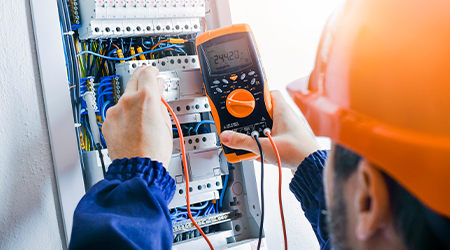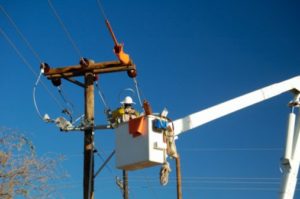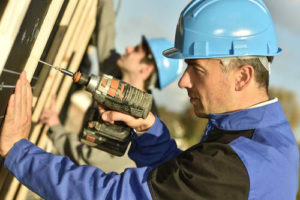
Electricians play a vital role in keeping homes and businesses powered. But working with electricity comes with serious risks.
If you’re an electrician or an apprentice in South Carolina and you’ve been injured on the job, you may be entitled to workers’ compensation benefits. Most employers in South Carolina are required to carry workers’ compensation insurance to pay for medical care, rehabilitation, and partial wage replacement for employees harmed on the job.
Filing a workers’ comp claim for electrician injuries can be complicated. That’s where we come in. The attorneys at Joye Law Firm have been fighting for injured workers in South Carolina since 1968. If you were hurt in an accident, we’re here to help you navigate the claims process and fight for the compensation you need.
Contact us today at (888) 324-3100 to schedule a free case evaluation. We have offices located in Charleston, North Charleston, Columbia, Myrtle Beach, Summerville, and Clinton, SC, and handle cases throughout South Carolina.
Common Injuries of Electricians in South Carolina
Working with electricity is inherently risky. Even the most experienced electricians who take safety precautions may sustain one or more work-related injuries during their career.
These are the most common electrician injuries we see:
- Electrical Burns: Electricians may suffer burns due to direct contact with electrical current or from exposure to arc blasts. Arc blast explosions can create temperatures as high as 36,000 degrees, causing severe or even fatal burns within seconds. Even with treatment, burns can lead to secondary complications, such as infection or scarring. The severity of the injury depends on the amount of electrical current and the duration of exposure. If an electrician is exposed to too much electrical current, they can suffer fatal injuries due to electrocution.
- Fractures and Broken Bones: Electricians often work on elevated platforms, such as on top of buildings, on ladders, and in other locations where they need to work on wiring or electrical fixtures. A misstep can cause an electrician to fall and sustain serious injuries or a fall may be a secondary injury if it was caused by exposure to an electrical current. Even if the electrical current didn’t injure the worker, the resulting fall could result in serious injuries.
- Lacerations and Shrapnel Injuries: Electricians may suffer from lacerations and shrapnel-type injuries as well as shock injuries during an arc blast or electrical explosion. These injuries can be severe or fatal.
- Hearing Loss and Tinnitus: If an electrical explosion occurs and a worker is in close proximity, the noise of the blast can cause serious injury. Workers exposed to arc blasts and electrical explosions may suffer from hearing loss or tinnitus, which is a constant ringing in the ears.
- Electric Shock: Electricians often sustain electric shock injuries to their hands, since they use hand tools and power tools to work with wiring and electrical fixtures. Electric shock injuries may cause permanent damage, such as tingling sensations, and muscle weakness. Electric shocks sometimes cause a condition called compartment syndrome. This occurs when limbs swell due to muscle damage, which may compress vital arteries and lead to more serious health issues.
- Severe Strains and Soft Tissue Damage: Electricians are at risk of harm caused by overexertion and repetitive movements. They often work in awkward positions and may sustain soft tissue injuries or repetitive stress injuries, requiring time off work or surgery and physical rehabilitation.
- Mesothelioma: Electricians may be exposed to asbestos when working on older buildings that have asbestos-wrapped wiring or insulation containing asbestos. Exposure to asbestos can lead to serious respiratory diseases including mesothelioma, a form of cancer caused by inhaling fine asbestos particles. Mesothelioma may develop in the lining of the lungs or the abdomen. All types of mesothelioma require chemotherapy and sometimes surgery.






